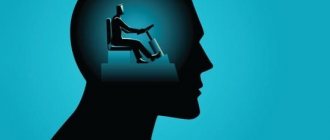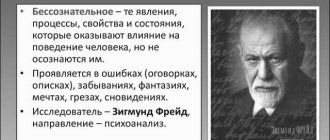Functions of morality
Like other philosophical and sociological categories, the concept in question has not only distinctive characteristics, but also some important functions. An indicator of the effectiveness of any term is often exactly the functions that are meant by it.
If we talk about morality, then it traditionally assigns such important functions for the life of each individual as:
Estimated. Here the phenomenon is examined, analyzed, and differences appear: whether this event acts as good or evil, a moral act was committed or not, whether it can be considered correct or not, etc.
Regulatory. The science of morality not only states certain facts and speaks about their qualities, but also establishes certain patterns of behavior, principles, rules of interaction between people
This is very important so that people can live in the same value system and form an integral society, and not an atomized collection of people incomprehensible to each other. It is the regulatory function that makes a huge contribution to the appearance of a person in any era.
Controlling
It allows you to influence a person’s behavior, force him to follow accepted patterns not only externally, in front of other people, but also in his inner world, self-awareness and thoughts. In society, this function helps to restore order, peace and normal friendly or at least neutral relations.
Integrating. It allows people not only to live in the same value system, but also to form strong communities among themselves, each member of which understands each other well and is ready to help and provide support.
Educational, the properties of which are to instill in a person the correct worldview and guidelines, force him to behave adequately to the social situation and make the right moral choice in any situation.
These are the basic functions of morality through which it regulates the lives of people all over the world.
PROPERTIES AND FUNCTIONS OF MORALITY, THE IMPORTANCE OF MORALITY IN BUSINESS.
ORIGIN AND CONTENT OF THE TERMS “ETHICS”, “MORALITY”, “MORALITY”.
The ancient Greek word “ēthika” (from ethos) serves as an analogue to the Latin concept “moralis” and the Russian term “morality”. They all imply some stability, internal orderliness of people's morals and customs.
The word “ethics” comes from the Greek “ēthos” - disposition, house, character, temperament, custom. Ethics is a problematic area of philosophy, the object of study of which is morality, ethics, and the central problem is good and evil. There are the following types of ethics: humanistic: focused on man, his life, freedom; authoritarian: focused on something external to a person, an idea, for example. Aristotle introduces the concept of “ethics” to designate a branch of philosophy, which is the doctrine of moral activity and virtues. Ethics is not only the doctrine of morality, but also part of morality itself.
The word "morality" is of Latin origin. A method of spiritual and practical development of the world, which consists in understanding the socially necessary type of behavior. It is derived from the Latin word mos (plural - mores), which meant approximately the same as ēthos in Greek - character, custom. The term " morality"
"appeared in the 4th century. n. e. in Latin, as a synonym for the Greek term “ethics”. Concepts of the emergence of ethics: naturalism (morality is inherent in human nature), social (morality is established in the society in which you live), creationism (creation - I create, morality is established neither in human nature nor in society, it is given to a person from another world)
The Russian word “morality” comes from the root “nrav”. And it was first used in the language in 1793 and was used along with the words “ethics” and “morality” as their synonyms.
Initially, these terms are largely the same. Later, with the development of culture, different contents were assigned to them. Morality began to be understood as real phenomena (the mores of society, certain norms of people’s behavior, their ideas about good and evil, etc.). The term “morality” is used in the same meaning. Ethics became a science that studies morality.
STRUCTURE OF ETHICAL KNOWLEDGE, BASIC CATEGORIES OF UNIVERSAL ETHICS.
The structure of ethical knowledge is determined by the set of basic concepts that guide ethics. These general concepts are called categories in ethics.
Ethics is the philosophical study of the essence, goals and causes of morality and ethics. Universal ethics are ethics used in all areas, common to all standards.
The main task of universal ethics: it must develop definitions of good and evil that would be acceptable to all people, since at the moment what is recognized as good in one society may turn out to be evil in another, and vice versa.
Morality is a way of spiritually and practically mastering the world, which consists in understanding the socially necessary type of behavior.
Main categories of universal ethics:
-Moral principles are basic ideas about proper human behavior, through which the essence of morality is revealed, on which other elements of morality are based (thou shalt not kill)
-Moral laws - do as you want to be treated.
-Moral concepts: good, evil, benefit, justice, duty, conscience, responsibility, dignity, honor,
-Rules of etiquette - rituals that we observe.
ANTINOMY OF MORALITY AND SPECIFICITY OF MORAL REGULATION.
Morality is a way of spiritually and practically mastering the world, which consists in understanding the socially necessary type of behavior. Properties of morality:
-moral standards are universal, but not identical. Depends on society, era and personal qualities of a person (cultural relativism of morality)
-moral behavior cannot be explained.
-morals cannot be taught. It is not transmitted like ordinary knowledge. It is transmitted through personal experiences.
-morality does not exist independently, only as a side of some activity. The specificity of the moral method of regulation is as follows. Morality manifests itself as a unity of the spiritual and practical: on the one hand, it serves as the basis of the spiritual culture of the individual and an indicator of the measure of humanity in a person; on the other hand, all practical activities of a person and his behavior are determined and organized by the moral ideas that have developed in society.
Antinomic properties of morality.
1. Antinomy of objective and subjective.
· a) Moral requirements have objective meaning regardless of subjective tastes.
· b) Moral requirements reflect a subjective position, necessarily someone’s position.
· c) Impersonality of the moral requirement. The demand does not come from anyone. The moral law appears in the form of an abstract requirement.
2. Antinomy of the universal and the particular.
· a) On the one hand, morality appears in the form of a specific moral system.
· b) On the other hand, the moral position is formulated in a universal form. The moral law is characterized by universality and uniqueness.
3. Antinomy of practical expediency and moral value.
· a) Morality has practical significance (benefit).
· b) Morality does not always contain benefits. Virtue is often punished.
· c) Selflessness of moral motive. Utility in morality is not pragmatic. Morality speaks about what should be done.
4. Antinomy of public and personal.
· a) Submission to average social norms.
· b) An individual with highly developed moral ideals is at odds with society. From a moral standpoint, she does not act as a representative of the social environment, but as a bearer of universal human values.
5. Antinomy of causality and freedom.
· a) Moral behavior has its reasons.
· b) A moral person is ready to go against logic, habit (autonomously, freely). The real reason for individual actions is freedom.
PROPERTIES AND FUNCTIONS OF MORALITY, THE IMPORTANCE OF MORALITY IN BUSINESS.
Functions of morality: Regulatory . Morality regulates the behavior of both the individual and society. The point is that not some people control the lives of others, but everyone builds their own position. Cognitive. Moral consciousness sees the world through a special prism and fixes this vision in terms of good and evil, duty and responsibility. Morality makes it possible to comprehend human destiny. Educational. Morality makes a person human. Morality does not so much teach one to observe a set of rules as it develops the ability to be guided by ideal norms. Estimated. Evaluates a person’s mastery of reality from the standpoint of good and evil. The subject of assessment is actions, attitudes, intentions, motives. Motivational. Allows a person to evaluate and, if possible, justify his behavior using moral motivation. Communicative. Acts as a form of communication, transmitting information about the values of life. Provides mutual understanding and communication between people based on the development of common moral values.
Properties of morality:
-moral standards are universal, but not identical. Depends on society, era and personal qualities of a person (cultural relativism of morality)
-moral behavior cannot be explained.
-morals cannot be taught. It is not transmitted like ordinary knowledge. It is transmitted through personal experiences.
-morality does not exist independently, only as a side of some activity.
↑ Morals and ethics
moral
| The concept of "morality" | The concept of "morality" |
| A specific sphere of culture in which high ideals and strict norms that regulate human behavior and consciousness in various areas of social life are concentrated and generalized (what should be, what a person should strive for (the world of what should be)) | The principles of real practical behavior of people, in which the severity of highly moral norms is significantly softened, i.e. this concept is given a more “everyday”, “down-to-earth” meaning. Really practiced norms that a person encounters in everyday life (the world of existence). |
Philosophical science, the subject of study of which is morality, is called ethics
(from gr. - custom). Ethics clarifies the place and role of morality in the system of other components of culture (such as science, law, religion, art, etc.), analyzes its nature and internal structure, studies the origin and historical development of morality, and substantiates its various systems.
Moral requirements for a person do not mean achieving some particular and immediate results in a certain situation, but following general norms and principles of behavior. Performing, along with the law that appeared later, the role of a regulator of people’s behavior, morality has common features with it, but at the same time is fundamentally different from it.
Properties of morality as a specific form of social relations
| Item: | Ethics |
| Kind of work: | Essay |
| Language: | Russian |
| Date added: | 15.05.2019 |
- This type of work is not scientific work, it is not a finished work!
- This type of work is a finished result of processing, structuring and formatting collected information intended for use as a source of material for independent preparation of educational work.
If you have a hard time understanding this topic, write to me on WhatsApp, we’ll look into your topic, agree on a deadline, and I’ll help you!
Using this link you can find abstracts on ethics on any topic and see how they are written:
| Many ready-made topics for ethics essays |
Check out these similar threads, they might be useful to you:
| Moral culture of the individual and its formation |
| Basic concepts of the origin of morality |
| Moral norms, principles, public opinion as tools of moral regulation |
| Morality is a priceless human asset |
Introduction:
The approach to identifying historical forms of morality can be different. Most often, researchers associate moral forms with the Marxist concept of history. In this case, the morality of the clan, slave, feudal, and bourgeois systems is compared. However, it is not always possible to make a clear comparison between the forms of morality and the type of material production.
Morality is independent and has its own internal laws of development. For example, the German-American philosopher Erich Fromm believed that in primitive society there was no individual property. Any hunter can take a spear and go hunting, and then transfer the weapon to another hunter. This created a sense of collectivism. Such a system is characterized by unconditional mutual support. Equality reigned under him.
“Each step,” writes Fromm, “threatened people with new dangers on the path to greater individualization. Primary connections, once broken, cannot be restored; man cannot return to the lost paradise. The individualized man has only one productive way of connecting with the world: active solidarity with other people, spontaneous activity (love and work), which again connects him with the world, not with primary connections, but as a free and independent physical person.
Morality as a subject of ethics
Morality (from Latin Moralis - morality), a special form of social consciousness and type of social relations, the subject of ethics. Morality regulates human behavior and consciousness in all spheres of public life - at work, at home, in politics, in science, in the family, in personal, intra-group, inter-class and international relations. In contrast to the specific requirements of each of these areas, the principles of morality are socially universal and apply to all people, consolidating that common and fundamental thing that makes up the culture of human relations and is formed in the process of development of society.
Morality has an imperative-prescriptive character; There is a special, necessarily evaluative way of mastering reality through the dichotomy (opposition) of good and evil. The connection of this concept of morality with a person who can only evaluate and command is obvious. Consequently, morality is understood as a subjective form of being, although it is universal for humans. But what about the attitude towards nature, can it be moral? Do living things have moral value?
Moral intuition answers these questions positively, but they turn out to be insoluble for a subjective approach to morality, which connects morality only with a person, with interpersonal and social relationships. Thus, an even broader definition of morality is valid.
Morality is a set of values of good and evil, as well as corresponding forms of consciousness, relationships, and actions. Unlike simple custom or tradition, moral norms receive ideological justification in the form of the ideals of good and evil, due, justice, etc. Unlike the law, the fulfillment of moral requirements is permitted only by forms of spiritual influence (public assessment, approval or condemnation). Along with universal elements, morality includes historically transitory norms, principles, and ideals. Morality is studied by a special philosophical discipline - ethics.
Properties of morality
Morality is a system with a certain structure and autonomy of its elements. First of all, morality is the rules of behavior. Morality can be divided into a natural, social and spiritual basis.
Natural foundations of morality . These foundations manifest themselves as innate moral feelings and, above all, feelings of conscience, compassion, love, duty, and reverence. In the teachings of Vl. A lot of truth. Solovyov, who took three feelings as the subjective foundations of morality - shame, compassion and reverence. But a person has many other moral feelings, including negative ones, such as feelings of anger, hatred, envy, etc. A moral person ultimately determines how to act in a particular case.
Social foundations of morality . The social foundations of morality include real moral relations, morality, customs, traditions, norms and principles of behavior. Each culture, nation, estate, social group, class, even profession develops its own special moral values, attitudes, and norms. Morality is a product of the historical creativity of all mankind. The development and existence of morality is greatly influenced by such social institutions as family, school, law, state, church, media, especially television.
The social foundations of morality include the objective moral values of various social systems, namely: the moral values of the economy, civil society, politics, law and the spiritual sphere. In fact, existing morality is fundamentally dependent on economics, politics, religion and other social systems. In turn, morality has an active influence on all spheres of social life, which is diverse.
Subjective morality also has social foundations, as what was formed in each individual in the process of his socialization. These are his moral ideas, standards of behavior, his virtues. The problem of moral education of the individual remains relevant, but it is obvious that it cannot be solved outside of society. There are no special bodies to maintain morality. These functions are accepted by public opinion.
Spiritual foundations of morality . Moral activity is, first of all, the spiritual activity of the person himself. Sometimes a person needs great courage and fortitude to resist evil and develop moral qualities. Even the most perfect people have experienced certain moral temptations. So, the Apostle Paul wrote: “For we know that the law is spiritual, but I am bodily, sold under sin. Because I don’t understand what I’m doing: because I’m not doing what I want, but what I hate, I’m doing.”
Religious ethics also recognizes the grace of God as the spiritual basis of morality through which certain moral principles and laws are believed to have been imparted to man. This refers to the religious experience of mankind, which reflects a similar divine origin of some moral commandments.
The essence of morality
The origin of moral norms is known through contradictions.
The first contradiction is related to the impersonality of the moral law. We practically do not know the author of the moral rules. We are subjectively - selectively guided by the ideas of good and evil. Of course, many of us are critical of the morality prevailing in society and understand that they are far from ideal, but, nevertheless, society accepts moral precepts that do not depend on the inclinations and preferences of individuals and even social groups. And ultimately we realize the impersonality of the moral law. The moral law is formulated as if it comes from everyone and nowhere, and does not rely on anyone's authority. But the impersonality of the moral law does not exclude its imperative and preference for execution.
The second contradiction presupposes the universal nature and universality of the moral requirement. The morals of different peoples and times reflect different historical conditions, lifestyles, mentality, needs and interests. Each social group has its own ideas about goodness and duty, often opposing in content. The same act can be acceptable for the young and immoral for the elderly, moral for the rich and immoral for the poor, and vice versa. For example, an oligarch, having “seized” billions, can buy a football team for millions and consider it moral, while millions of pensioners have difficulty making ends meet and consider the oligarch’s act immoral. But morality can be diverse and universal at the same time. This is due to the universality of moral requirements.
The third contradiction points to the selfless moral motive, the apparent futility of moral design. Perfect virtue does not always turn into goodness. To succeed in business, it is often necessary to break established rules, including moral ones. Moreover, if a person expects to receive some kind of benefit for committing a moral act, then such an action essentially loses its moral value. Consequently, a truly moral act is considered to be committed disinterestedly, without retribution for it.
The fourth contradiction is related to the establishment of moral equality and moral unity of humanity. If a person is able to break out of everyday patterns of behavior, then his behavior is respectful. A traffic inspector or a teacher who does not take bribes, a student who, in principle, does not use cheat sheets, love between young people of different nationalities or social status - all these actions may seem like a challenge to a certain social environment and at the same time evidence of high moral principles.
The fifth contradiction is that free causation is revealed when we try to find out the cause of a moral action. On the one hand, such a reason may be social significance, the approval of such an act by other people, but, on the other hand, subjective potency and moral readiness to act contrary to circumstances, public opinion, and even contrary to a seemingly important reason. The ability to exercise one's autonomous freedom is an unrivaled morality.
Conclusion
Morality is the sphere of ideological relations between people (i.e., existing spiritual life) and has common features with other forms of social consciousness (science, religion, art, etc.). properties and specific, only inherent features.
Its universally significant properties are: socio-economic conditionality of the content, relative independence of existing conditions, the possibility of active influence on social processes, continuity in development, interaction with other forms of social consciousness.
These properties characterize morality and other forms of social consciousness as phenomena of social nature, the content of which is determined by material and spiritual factors and specific historical social conditions. But each form of public has not only general, but also specific properties that manifest themselves in the process of activity and interaction of people.
The distinctive features of science are such properties as consciousness, rationality, and generalization. Religion is characterized by imagery, emotionality, and an orientation toward the inner world of man. Political consciousness is focused on the broad masses, determines a leader who corresponds to his goal, considers it appropriate to have an attractive form of presentation, etc. As for morality, its main features are imperativeness, normativity and socialization.
What are moral standards
Fulfillment of moral norms is the moral duty of the subject; violation of these measures of behavior represents a feeling of moral guilt.
Moral norms in society are generally accepted measures of subject behavior that arise from formed morality. The totality of these norms forms a certain system of rules, which in all respects differ from the normative systems of society such as customs, rights and ethics.
In the early stages of formation, moral norms were directly associated with religion, which prescribes the meaning of divine revelation to moral norms. Each religion has a set of certain moral norms (commandments) that are mandatory for all believers. Failure to comply with prescribed moral standards in religion is considered a sin. In various world religions, there is a certain pattern in accordance with moral standards: theft, murder, adultery, and lies are undeniable rules of behavior for believers.
Researchers studying the formation of moral norms put forward several directions in understanding the meaning of these norms in society. Some believe that compliance with the rules prescribed in morality is a priority in the guise of other norms. Followers of this trend attribute certain properties to these moral norms: universality, categoricalness, immutability, cruelty. The second direction, which is being studied by scientists, suggests that the attribution of absolutism, generally accepted and binding moral norms acts as a kind of fanaticism.
In terms of the form of manifestation, some moral norms in society are similar to legal norms. So the principle “thou shalt not steal” is common to both systems, but by asking the question why a subject follows this principle, one can determine the direction of his thinking. If a subject follows a principle because he is afraid of legal liability, then his act is legal. If the subject confidently follows this principle, because theft is a bad (evil) act, the vector of direction of his behavior follows the moral system. There are precedents in which compliance with moral standards is contrary to the law. A subject, considering it his duty, for example, to steal medicine in order to save his loved one from death, acts morally correctly, while absolutely breaking the law.
Studying the formation of moral norms, scientists came to a certain classification:
– norms affecting questions about the existence of an individual as a biological being (murder);
– norms on the independence of the subject;
– norms of social conflicts;
– norms of trust (loyalty, truthfulness);
– norms relating to the dignity of the subject (honesty, justice);
– confidentiality standards;
– norms about other moral norms.
Why are moral standards needed?
When we defined the concept, we found out that moral norms are the rules of behavior of people in society, not fixed by law, but desirable to be followed, because this is in the interests of both the whole society and individuals. Thus, moral norms arose from the desire or need of society to somehow regulate the behavior of all members of society and relationships within society.
Let's look further and try to answer the question: why, in principle, does society somehow regulate the behavior of all members of society and the relationships within it? Answers such as security, protection from crimes and other crimes are not suitable, because this is already an area of law. Moral norms, unlike legal norms, are not written and certainly not regulated by force.
Consequently, society needs some additional regulation of the behavior and relationships of members of society, which goes beyond the provision of minimal basic needs. Needs that go beyond the basic are precisely what distinguish people from representatives of the animal world. And the presence of moral standards is one of these distinctive features.
Moral norms act as regulators of people's behavior on a par with legal norms and religious norms where the church is not separated from the state. In this regard, the article “Norms of morality, law, religion as regulators of behavior” [E. Toguzaeva, 2007].
Equally interesting is the observation regarding moral standards made in the article “Moral values and their role in modern society” [E. Polikanova, 2014]. The author draws attention to the fact that many moral norms are formulated in the imperative mood: “thou shalt not kill,” “thou shalt not steal,” “thou shalt not commit adultery,” “act towards others as you would like them to act towards you.” "
On the one hand, the imperative mood and indication of desired or undesirable actions look like an imposed norm of behavior. However, when these norms become generally accepted and the majority of people realize their observance as their moral duty, these postulates become moral norms.
Thus, moral norms become a specific form of coordination of human freedom and his needs and the interests and needs of society. And here we come close to considering all the functions that moral norms perform in society.
Functions of moral standards:
- Evaluative - thanks to the existence of moral norms, society has guidelines for how to evaluate certain actions, certain actions of people.
- Regulatory - moral norms regulate the behavior of members of society, encouraging desirable behavior and condemning undesirable behavior. Thus, a balance of interests of all members of society is achieved.
- Educational - moral norms are the basis for the formation of higher order values in society, such as patriotism, dedication, self-sacrifice.
- Controlling - the very fact of the existence of moral norms, their universality and bindingness include mechanisms of control and self-control over their compliance. Even those individuals who for some reason do not share existing moral norms are forced to reckon with them.
- Integrating – moral norms contribute to the achievement of internal harmony among members of society, coordination of actions and beliefs, thoughts and actions, goals and ways to achieve them.
The rules and norms of public morality are one of the most important tools for a person’s adaptation to life in society, the integration of individual freedom and responsibility, individual freedom and social necessity. Moreover, moral norms are primary in the process of human socialization.
Moral standards are instilled in children from a very early age, and children acquire them through implicit learning or learning without awareness of the learning process as a process that has some goals and objectives. So, gradually a person realizes the need to behave in one way or another, to correspond to a certain type of social expectations and, if you like, simply to be cultured, educated and adequate.
Moral standards, as we discussed above, can differ markedly for different historical periods, countries, continents, social groups, but they always have something in common. Moral standards, one way or another, make a person, if not kinder, then more decent. These norms, of course, impose certain prohibitions (“thou shalt not kill,” “thou shalt not steal”), but this simplifies interaction between people.
At the same time, moral norms do not always act as a ready-made set of rules, such as, for example, the 10 Christian commandments. It is rather a beacon or a landmark in the vast ocean of emotions, events, relationships, communications and everything that is inherent in human society. As they say, do no harm to anyone, for evil will return to you. Better do good, because it comes back much less often. This is partly a joke, and partly the willingness to do good and not expect rewards for it is also a sign of moral maturity and the assimilation of moral standards.
I think we have figured out what moral standards are and why society needs them. We remind you that we are waiting for you in our “Cognitive Science” and “Self-Knowledge” programs. And we suggest answering one question on the topic of the article:
We also recommend reading:
- Storytelling
- Stages of development of ethics in organizations
- Forms of social behavior of people
- Cognitive development. Part 2
- Moral: what is it and why is it needed?
- What is social awkwardness and how to get rid of it
- Cynicism
- L. Kohlberg's theory of moral development
- Conscience: why doesn’t everyone have it and what to do if it doesn’t?
- Conformism
- Overton Window: Definition, Mechanism, Impact
Key words: 1Cognitive science, 1Self-knowledge
Anthropology
Tribal and territorial
Celia Green distinguishes between tribal and territorial morality. The latter is defined as predominantly negative and prohibitive: it separates a person's territory, including his property and those who depend on him, with the rule that this territory should not be violated or taken away. At the same time, territorial morality is permissive because it allows a person to do everything on his territory as long as he does not violate the territory of others. In contrast, tribal morality is instructive because it imposes collective norms on the individual. These norms are largely arbitrary, culturally dependent, and 'flexible', while territorial morality targets rules considered universal and absolute, such as Kant's 'Categorical Imperative' and Norman Geisler's ranked absolutism. Green connects the development of territorial morality with the emergence of the concept of private property and the formalization of differences in social status.
Inside and outside the group
Some researchers note that sometimes different rules of morality are applied to people depending on their belonging to an “in-group” or “out-group” (a person defines a group as “in-group” if he psychologically identifies himself with it in cultural, ethnic or some other way). in a different sense). Some biologists, anthropologists, and evolutionary psychologists believe that this "friend-or-foe" discrimination emerged because it increases the group's chances of survival. This view has been confirmed in some simple computer models of evolution. In these models, such discrimination sometimes results in unexpectedly close cooperation with members of the in-group, as well as irrational hostility towards members of the out-group. G. R. Johnson and V. S. Falger argue that nationalism and patriotism are forms of this distinction between insiders and outsiders. Jonathan Haidt has observed that experimental observation of an ingroup criterion strengthens the moral judgments of conservatives, and to a much lesser extent of liberals.
In secular societies, life choices that represent a person's understanding of the right life are often discussed in moral terms. It happens that a certain choice of lifestyle and accepted rules of behavior in a certain narrow community seem to a person more fair than the moral norms of society as a whole.
Comparison of cultures
Christopher Peterson and Martin Seligman take an anthropological view of cultures across place and time. They conclude that certain values are prevalent in all the cultures they have studied. wisdom/knowledge the main values bravery; humanity; justice; restraint and open-mindedness
.
Each of them, in turn, is divided into other parts, for example, humanity
includes
love
,
kindness
and
intelligence
.
Fons Trompenaars, author of Is the Pedestrian Dead?
, conducted social experiments on representatives of different cultures with different moral dilemmas.
One of them is whether a passenger in a car should lie to protect a fellow driver if he hits a pedestrian. Trompenaars found that different cultures give very different answers (from "no" to "almost certainly"), and in some cultures the answer depends on whether the pedestrian died ->.[ source not specified 2601 days
]
John Newton, author of Complete Conduct Principles for the 21st Century
, compares Eastern and Western cultures from a moral perspective. He defines the purpose of his book as follows: “...to harmoniously mix the best in the cultures of the East and West in order to obtain new and better principles for human society in the new century, to popularize the ethical theories of China in the Western world. The author hopes that this will help solve the problems of human society in the 21st century, including those that each culture individually is not able to solve.”
How is morality formed?
A person's morality largely depends on himself. Only the individual himself is responsible for what happens to him. Whether a person will be successful or not is accepted by others depends on how willing she is to follow the orders established in society. The development of morality and moral concepts occurs in the parental family. It is those first people with whom a child begins to interact in the early stages of his life who leave a serious imprint on his future fate. So, the formation of morality is significantly influenced by the immediate environment in which a person grows. If a child grows up in a dysfunctional family, then from an early age he develops a misconception about how the world works and develops a distorted perception of himself in society. As an adult, such a person will begin to experience enormous difficulties in communicating with other people and will feel dissatisfaction on their part. If a child is raised in a prosperous average family, he begins to absorb the values of his immediate environment, and this process occurs naturally.
Awareness of the need to follow social instructions occurs due to the presence in a person of such a concept as conscience. Conscience is formed from early childhood under the influence of society, as well as individual inner feelings.
Functions of morality
How do we recognize morality? Morality is primarily a way to flexibly change the behavior of individuals in the course of social life. This is its regulatory function. As society developed, many other solutions arose to stimulate the “correct” actions of people: administrative penalties, legal norms. However, morality remains a unique phenomenon to this day. Its manifestation does not require reinforcement from punitive authorities or special institutions. The regulation of morality is carried out through the activation of neural connections that were formed in the process of human upbringing and correspond to the principles of behavior in society.
What is the hallmark of morality? Another of its functions is to evaluate the world from the point of view of humane behavior. To some extent, morality contributes to the development and creation of communities of individuals. The manifestation of the evaluative function forces a person to analyze how the world around him changes, depending on the commission of certain actions.
Another important function of morality is educational. By concentrating the positive experience of previous eras, morality makes it the property of future generations. Thanks to this, the individual gets the opportunity to acquire the correct social orientation, which does not contradict public interests.
Definition and Characteristics
Morality is the socially accepted ideas about good and evil, about what is right and what is wrong. The ability to distinguish good from bad is manifested in the actions and thoughts of both individuals in particular and human associations in general. Morality is a way of self-organization of society with its inherent controlling aspects.
Moral standards have their own distinctive features:
- Extension to all members of society, regardless of their position.
- Freedom of choice in following or not following moral standards, although a person’s decision is significantly influenced by his conscience, public opinion and belief in the existence of karma and other personal prejudices.
- Total penetration into all spheres of people’s lives, be it economic or social, including their range of interests and activities: creativity, education or business.
Morals and ethics
The term ethics is of Greek origin from the word "ethos". The use of this word denoted actions or actions of a person that were powerful to him personally. Aristotle defined the meaning of the word "ethos" as the virtue of a subject's character. Subsequently, it was customary that the word “ethicos” is ethos, meaning something related to the temperament or disposition of the subject. The emergence of such a definition led to the formation of the science of ethics - the study of the virtues of the character of the subject. In the culture of the ancient Roman Empire there was a word “moralis” - defining a wide range of human phenomena. Later, a derivative of this term “moralitas” appeared - relating to customs or character. Analyzing the etymological content of these two terms (“moralitas” and “ethicos”), it should be noted that their meanings coincide.
Many people know that such concepts as “morality” and “ethics” are close in meaning, and they are also often considered interchangeable. Many people use these concepts as extensions of each other. Ethics, first of all, is a philosophical direction that studies moral issues. Often the expression “ethics” is used to designate specific moral principles, traditions, and customs that exist among subjects of a limited group of society. The Kantian system views the word morality, using it to denote the concept of duty, principles of behavior and obligations. The word "ethics" uses Aristotle's system of reasoning to denote virtue, the inseparability of moral and practical considerations.
The concept of morality, as a system of principles, forms a set of rules that are based on many years of practice, and allows a person to determine the style of behavior in society. Ethics is a section of philosophy and theoretical justification of these principles. In the modern world, the concept of ethics has retained its original designation as a science in the ranks of philosophy that studies human properties, real phenomena, rules and norms, which are moral norms in society.
We are on Telegram! Subscribe and be the first to know about new publications!
Functions of morality
Few people actually question why morality is needed? This concept consists of many important components and protects a person’s conscience from unwanted actions. The individual is responsible for the consequences of his moral choice not only to society, but also to himself.
The evaluative function is related to how other people or the person himself determines the actions he has committed.
In the case when self-assessment occurs, the person is usually inclined to justify his own actions by some circumstances. It is much more difficult to bring actions to public court, because society is sometimes unforgiving when assessing others.
The regulatory function helps to establish norms in society that will become laws intended to be followed by all. The rules of behavior in society are acquired by the individual at a subconscious level. That is why, when we find ourselves in a place where there are a large number of people, most of us, after some time, begin to unerringly follow the unspoken laws adopted specifically in this particular society.
Such control helps to achieve a state of “clear conscience” and social approval. If an individual does not behave appropriately, then he will certainly receive condemnation from other people as a backlash.
The integrating function helps maintain a state of harmony within a person. When performing certain actions, a person, one way or another, analyzes his actions, “checks” them for honesty and decency.
The educational function is to give a person the opportunity to learn to understand and accept the needs of the people around him, to take into account their needs, characteristics and desires. If an individual reaches a state of such internal breadth of consciousness, then we can say that he is able to care for others, and not just for himself. Morality is often associated with a sense of duty.
Purpose of morality
To understand how important the importance of morality and its functions is in human life, it is necessary to consider the main ones:
Regulatory function
Legislative acts are a way of regulating relations between people and their behavior, which is fixed at the official, that is, formal level. The main difference between the regulatory function of morality is that it does not require any documents, since the adoption of moral norms and principles is a voluntary desire of a person; they regulate his actions, becoming part of his personal views, principles and beliefs.
Evaluation function
It consists in the perception of one’s own and others’ actions, that is, it is a moral assessment of reality from the point of view of its comprehension based on humanistic potential.
Educational function
Thanks to moral norms, moral principles, as well as rules of behavior that educate a person in society, certain social ideals are formed and a person’s internal desire is developed to ensure a proportional combination of individual and public interests so that the efforts made in achieving set goals do not cause harm to others.
Control function
Unspoken control by others over an individual’s behavior; As a backlash to certain actions, both positive and negative sanctions can be imposed.
Integrating function
It exists to maintain a harmonious state within a person, since everyone analyzes their actions and actions, including from a moral point of view.
Approaches to the Study of Morality
Naturalistic - comes from the complication of group feelings, ensures the survivability of the species in nature. Naturalists do not distinguish between the social and the biological; it is combined; there is no boundary between human and animal consciousness.
Religious-idealistic – God endowed humanity with morality.
Sociological - morality arises as a result of collective work activity and communication. The more complex social relationships, the higher the morality.
There are 3 moral foundations put forward:
- Traditions, customs and mores are the cultural characteristics of a particular ethnic group (people). With the help of socialization, the customs and norms of a given society are assimilated, which become a habit that shapes the personal side of a person. As a result, all actions will be of the nature of “this is how it is accepted” or “this is not accepted.”
- Public opinion is the regulation of norms of behavior through the approval or condemnation of other individuals in society. The reward for compliance with moral standards is honor, respect, recognition, and for violations - shame, isolation.
- Personal consciousness is the consistency of personal and social interests. Conscience is the main regulator of behavior. Morality appears to be a form of self-regulation, being selfless and personal. The choice of actions is characterized by voluntariness.
Moral consciousness is the ideal of moral behavior in a particular society, which does not go beyond the boundaries of the ethnic group.
Moral norm - has a formative effect on the moral beliefs of the individual: self-improvement, honesty, courage, struggle for truth.
A moral norm is options for a person’s everyday behavior: which actions are acceptable in society and which are not.
Imperativeness is a property of moral norms. Expresses the meaning of the norm, since in one case a prohibition is allowed, and in another, positivity is attributed. For example: “don’t lie.” A set of norms is determined by a moral code.
- In addition, the code includes value orientations:
- Characteristics of personality actions;
- The virtues of the individual, team, society;
- Characteristics of public institutions;
- Value concepts
- Categories of morality - good and evil, justice.
Motivation, assessment, self-esteem - a regulator of social behavior. Motive encourages moral activity in order to satisfy the needs of the individual. Motivation is a complex of motives responsible for the priority of an individual’s values and goals.
Moral assessment – gives a value assessment of an individual’s actions and behavior depending on existing norms and values in society.
Conscience is moral self-control, expressed in the formulation of rules of behavior, their implementation and evaluation of actions.
Debt is how an individual relates to society.
Norms and principles of morality
Of all the variety of moral norms, it is customary to highlight only seven, which are becoming the most widespread and relevant in the modern world (their influence can also be traced in religious teachings):
- Sanity, or prudence, that is, the ability of an individual to think prudently, without succumbing to emotions and momentary impulses.
- Asceticism, or abstinence, extends not only to sexual relations between people, but also to restrictions on food, entertainment and other pleasures, because an excess of material values distracts from the improvement of spiritual values.
- Justice, or impartiality, manifested in the assessment of other people, including respect for them, their needs and interests. For all actions that a person has committed in relation to others, at a certain time there should be a commensurate response: retribution or reward.
- Stubbornness, or steadfastness, means the ability to overcome difficulties and learn from them. It can be shared with others, helping to move forward, despite the obstacles that arise along the path of life.
- Hard work, or perseverance, is a quality that helps a person realize himself in any business related not only to personal gain, but also to public benefit. This moral principle has been valued since the very beginning of humanity and is of great importance in society to this day.
- Humility, or submission, expresses a person’s ability to stop in time, before he has time to mess things up.
- Politeness, or delicacy, is the basis of diplomacy, constructive relationships and profitable deals.
In addition to the above-mentioned moral standards, there are moral principles that help determine common, similar forms of interaction between people in society. These are the behavioral criteria:
- humanism - the highest value is the person, his dignity and self-worth;
- collectivism - the conscious desire of the individual to contribute with all his might to the common good;
- altruism - willingness to help others free of charge and selflessly;
- mercy - a manifestation of good nature, goodwill, compassion and philanthropy;
- voluntary renunciation of extreme individualism and manifestations of selfishness;
- the principle of the golden mean - a sense of proportion in everything: in deeds, actions, emotions;
- the principle of talion, or “an eye for an eye” - the need to compensate for losses to one individual at the expense of another, if the loss of the first was due to the fault of the second. At the same time, it is necessary to tune in to the search for positive and constructive methods of exiting crisis or conflict situations.
A moral norm obliges a person to perform certain actions or prescribes how he should behave in similar situations; a moral principle shows the general direction of effort to be made during an activity.
The essence of morality
Morality consists of special rules that determine the behavior of people, their attitude towards each other, the environment and themselves. Here concepts such as justice, injustice, good and evil are taken into account.
The concept of morality provides vital guidance and expresses the human desire for conscious self-improvement of one’s behavior.
The main role played by morality is the regulation of human behavior in the interaction of society, by establishing certain rules and norms. Compliance with moral norms, as well as values, shape a person’s morality.
Value is everything that a person distinguishes according to a certain principle. Morality is a set of morals that are manifested in a person’s affairs, his practical behavior and his sphere of residence. Moral is a social way of life, a custom that has significance for a social group.
Moral norms have existed for thousands of years and are passed down from generation to generation, forming universal human spiritual values, which are contained in the basic prohibitive rules.
A person cannot:
- kill;
- steal;
- lie;
- envy;
- encroach on someone else's property, etc.
The highest moral values are:
- Humanism. Defined as a merciful, generous attitude towards people, tolerance, and the ability to forgive.
- Patriotism and citizenship. It consists of devotion and love for one’s Fatherland, as well as respect for the interests of the state.
- The “Golden Rule of Morality,” the essence of which is that you should treat other people the way you expect them to treat you.
Moral standards of behavior are supported and reinforced by the opinion of society
When interacting with each other, people pay special attention to the concepts of kindness and malice. In society, kindness is valued and wickedness is condemned
Goodness makes life better, morally elevates the individual and improves society.
Man considers goodness to be the best moral quality. Good is justice, mercy, love, selfless help.
Evil is violence, cruelty, betrayal, deception and theft. Evil destroys morality and contributes to the degradation of the individual and society.
Morality, its basic norms and values
Morality (from Latin - mores) is a social institution, one of the forms of social consciousness that performs the function of regulating people's behavior in all areas of public life without exception. Morality reflects the views and ideas, norms and assessments of the behavior of individuals, social groups and society as a whole.
In the Russian language, the concept corresponding to morality is the word “morality”. The science that studies morality is called ethics (from the Greek - character, fashion). The words “moral”, “moral”, “ethical” are usually synonymous. There are several functions of morality (educational, cognitive, motivational, prognostic). However, the main function of morality is regulatory.
Morality is a regulator of social behavior, one of the main ways of regulating human actions in society with the help of moral norms.
Morality originated in primitive society and was initially closely connected with religion. It is not for nothing that one of the postulates of Christianity, “do not do to others what you do not wish for yourself,” is called the “golden rule” of morality.
Morality changes depending on the conditions of society. The political and legal form of consciousness arose later than the moral one and is associated with the formation of the state. Law and morality are closely related. Law is also a regulator of human behavior. However, the scope of morality is broader than law. Legal norms are fixed by the state, and sanctions for their violation are imposed by government agencies. The source of moral standards is society itself. It is possible to systematize moral norms and create a kind of “moral code,” but it is impossible to write down all moral norms. They live in public opinion and are reflected in various works of literature and art.
The punishment for violating moral standards is public censure and condemnation. Unlike legal sanctions, moral norms do not regulate in advance specific measures and forms of influence. At the same time, the motivation of an action is important for public opinion. For example, from a legal point of view, any theft is punishable; from a moral point of view, stealing a piece of bread for a hungry child can be justified by public opinion.
Ethics. Moral choice.
Ethics is a theory of morality, a special section of philosophy that explores questions about the origin and essence of morality, about how a person should act. Ethics reflects on what is good and what is evil, what is the purpose and meaning of human life.
The concept of good expresses our most important interests, the desire for humanity and humanism. By good we understand everything that contributes to the improvement of life and the elevation of a person’s personality. An attitude of trust, justice, mercy, and love towards one’s neighbor is considered good.
Everything that is opposite to good is evil. The concept of evil includes ideas about the immoral, inhumane, and unkind. This concept deserves condemnation, contempt and must be overcome by people. The concept of evil covers all negative phenomena (violence, deception, meanness, theft, cruelty, betrayal, etc.)
Good and evil are the basic concepts of ethics. They serve as a guide for us in mastering the vast moral world. A moral person organizes his activities in such a way as to increase good and reduce evil.
When we evaluate something as good, we thereby want to say that we should strive for it, and if it is considered evil, we should avoid it. By assessing the world around us, we change something in it, and first of all ourselves, our position, behavior, worldview - this is the moral choice.
The categories of justice and injustice are associated with the categories of good and evil. Justice is the requirement of correspondence between what should be and what is real, between the value of something and its assessment, between human rights and responsibilities, action and retribution, crime and punishment. The discrepancy in these ratios is assessed as injustice.
Categories of morality determine the highest spiritual values. Such values include truth, as the correct reflection of reality in thought, knowledge that opens up for a person the opportunity to satisfy needs. At the same time, the moral understanding of truth is closer not to its philosophical definition, but to the Russian word “truth”.
The category of beauty is associated with the concept of “perfection”, i.e. what best meets people's needs.
The highest spiritual values are certain spiritual supports that help a person to resist in the face of trials. Each culture can be thought of as a set of specific values shared by the majority of its representatives. Values organize reality, introduce evaluative moments into its understanding, and give meaning to human life. They define the moral ideal of society as the idea of moral perfection.
The moral ideal changed in different eras and among different peoples depending on changes in the highest spiritual values. Ideals of beauty also changed from era to era.
Thus, moral norms are formed depending on the categories of morality, which, being the highest spiritual values, determine the moral ideal that prevails in society.
In the process of socialization of a person, his moral consciousness is formed, associated with the moral assessment of any activity. Thus, moral norms determine human behavior in all areas of life. There is environmental ethics, scientist ethics, consumer ethics, production ethics, etc.
It is important that the requirements of public morality become a conviction, an integral part of self-awareness, and a person’s life position. Qualities such as duty, dignity, and honor play an important role in this. But of particular importance is the formation in each person of the ability to independently develop and direct his own line of behavior in society without everyday external control. The most important form of self-control is conscience. Conscience is a self-assessment of committed actions based on a person’s understanding of his responsibility to society, an expression of an individual’s ability to exercise moral self-control and independently formulate moral responsibilities for himself. Conscience is related to the inner conviction of what is good and evil. However, the concept of good is abstract, it changes due to changes in historical conditions, and very often in specific life situations it is difficult to determine whether a particular action is good or bad.
Every person in his life faces a moral choice. This moral choice consists of identifying the highest moral values and following them and the moral ideal. However, in connection with the revaluation of values taking place in modern society, a person is forced to decide for himself what is good, justice, and duty in a particular situation; each person is forced to make his own moral choice, sacrificing some personal needs in the name of higher values.
Thousands of years ago, people discovered that the highest moral value is love for one’s neighbor, for man. This means that we must strive for peace and brotherhood. You need to be merciful and generous. You need to be able to tolerate the shortcomings of other people, be able to forgive, sometimes sacrificing your own interests. This is where love for one's neighbor is manifested.
Moral standards in modern society
Moral standards are not established at the legislative level, because for a person who thinks sensibly, their observance is natural. It is customary in society to condemn violations of moral standards. In any social group there are historically established ideas about good and bad, which are determined by personal principles. So what is a moral norm and what is its role in human life?
Moral standards (moral norms) are rules of human behavior arising from ethical and moral principles. Their observance is a moral obligation, and their violation is a source of moral obligation. This is the most important concept in moral philosophy.
️Basic values and moral standards were formed as a result of various circumstances.
For example, a cheerful disposition is normal, malicious ridicule is bad. Harming someone is wrong, but protecting your family, even if you have to harm someone, is acceptable. Again, cooking at home is natural, but feeding homeless people is a highly moral act. Moral principles were formed long before legal norms. Primitive society arose under their influence. Moral standards contributed to the formation, collection of knowledge and subsequent progress of this community. The first laws were based on established norms and rules of behavior, in a more severe and specific logical form.











